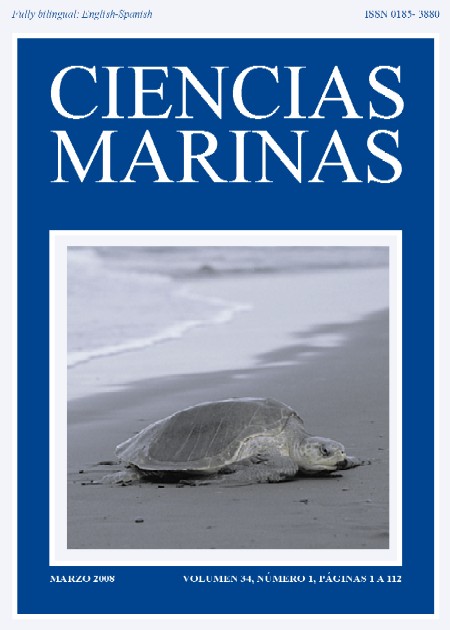Fish without water: Validation and application of δ18O in Totoaba macdonaldi otoliths
Main Article Content
Abstract
The geochemistry of fish otoliths is a valuable tool for reconstructing environmental conditions, migrations and life histories. In this study we validate the relationship between temperature, the water oxygen isotope composition (δ18O) and otolith δ18O for the endangered Totoaba macdonaldi, raised under controlled aquaculture conditions and in the field. This type of validation is instrumental for habitat reconstruction. By comparing δ18O values in the natal portion of totoaba otoliths from modern and pre-dam specimens ~1000–4500 yr BP, we test the hypothesis that the totoaba used the Colorado River estuary as a nursery site before the river was over-allocated. We found that otolith δ18O could be predicted in a laboratory setting as well as in the wild. Totoaba otoliths from before river diversion had drastically lower natal δ18O values than predicted values, indicating that these differences in δ18O values are the result of a change in the water δ18O, a consequence of diverting the isotopically negative Colorado River flow from the totoaba's nursery grounds. We conclude that the Colorado River flow was a major component of the totoaba's nursery habitat before river diversions. These results are pertinent to ongoing research on this endangered fish, using otoliths to piece together important ecological and life history information.
Downloads
Article Details
This is an open access article distributed under a Creative Commons Attribution 4.0 License, which allows you to share and adapt the work, as long as you give appropriate credit to the original author(s) and the source, provide a link to the Creative Commons license, and indicate if changes were made. Figures, tables and other elements in the article are included in the article’s CC BY 4.0 license, unless otherwise indicated. The journal title is protected by copyrights and not subject to this license. Full license deed can be viewed here.

